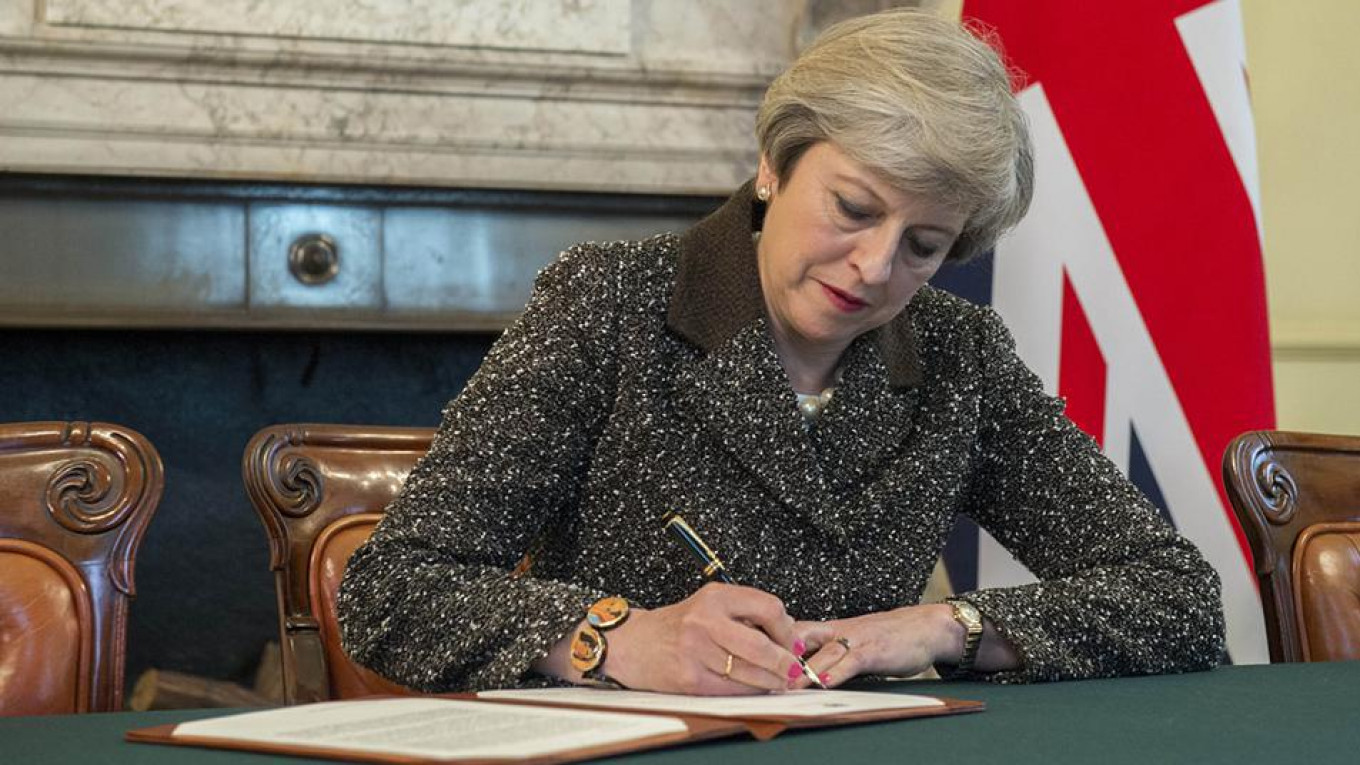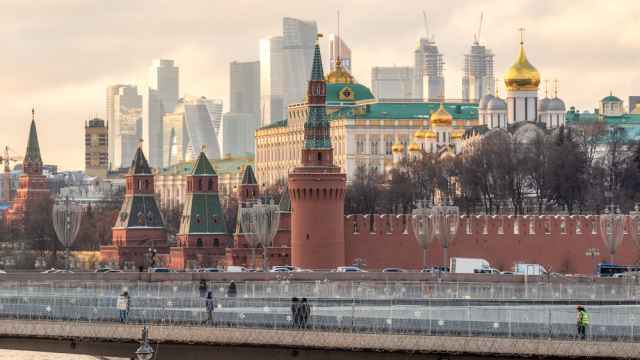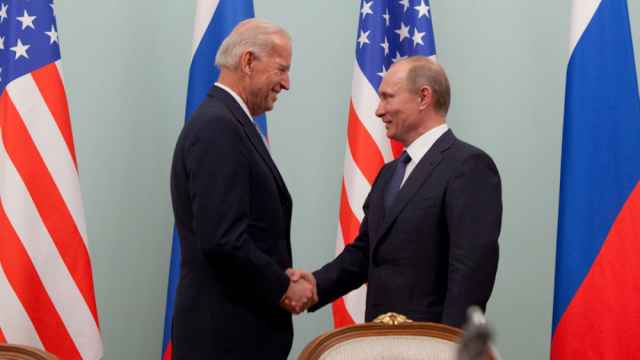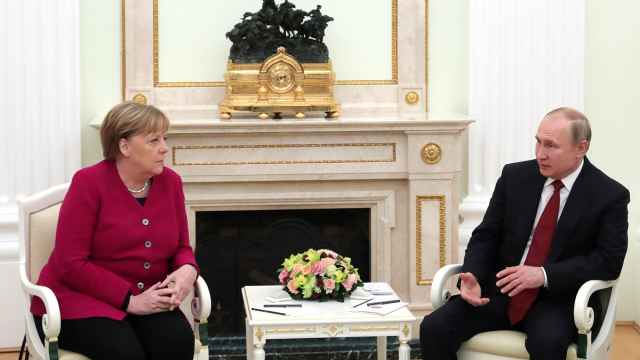It has been another sanctions-filled month for Russia. Last week, British Prime Minister Theresa May announced a set of measures in retaliation to the Skripal affair, the poisoning of a former Russian double agent in Salisbury for which the British authorities hold Russia responsible.
The U.S. followed by applying for the first time the Countering America's Adversaries Through Sanctions Act (CAATSA) against two alleged intelligence operatives and a number of people they accuse of being involved in Russian “troll” activity ahead of the U.S. elections in 2016.
From a business perspective, Russia has got off easy.
The U.S. sanctions, in particular, indicate that President Donald Trump is still reluctant to apply the law intended to punish businessmen to actual businesses. This may rile the Congress, which is CAATSA’s main driving force, but it is a long way from there to actual moves harming U.S.-Russian trade — such as there is.
The U.K. sanctions are more interesting, not least because they are a work in progress. Early reactions, however, consist largely of public slights – the expulsion of 23 diplomats, increased border checks, threats of possible personal sanctions and an official and royal boycott of the World Cup. Sad as it is that the Queen will not see the new football stadium in Mordovia, it is not very relevant for the business climate.
More ominous is May’s threat to target “serious criminals and corrupt elites” from Russia, but what – if anything – that means, remains to be seen. Perhaps realizing that, Moscow has so far restricted its reaction to promise of a diplomatic tit-for-tat.
The reaction on both sides is almost exclusively confined to the realm of public politics.
For the Kremlin, the scandal is about strengthening the narrative of “Fortress Russia,” besieged by hostile Western nations. For May, the objective is to protect and improve her less-than-stellar approval rating by being tougher than the British authorities were in the 2006 Litvinenko case — another poisoning in Britain attributed to Russia, in which official reaction is now widely perceived as delayed and weak.
For both sides, this means a preference for simple and flashy public measures that would look good on Kremlin-funded news networks or in the UK tabloid media.
Russian-British business relations are more significant than some think. Some 2.2 percent of Russia’s total foreign trade in 2017 — more than with India or most EU countries — and $1.6 billion of direct British investment in Russia in the first three quarters of last year.
But much of it is routine business activity that gets little public attention. Outside of BP, the U.K. does not have many iconic business powerhouses operating in Russia – no Coca Cola or Lockheed Martin. In other words, the bulk of businesses involved in bilateral trade and investment operates under the political radar.
As a result, both sides mostly avoid targeting businesses, as has been the practice in most Russia-West scandals of recent years. Gazprom was placing Eurobonds in London on the same day that May was making her statement in Parliament, and they were oversubscribed — even if only percent of the subscribers were British.
Targeting businesses would yield relatively little public opinion dividend. At the same time, it’s a move that would harm economies and irritate business lobbies, a consideration that both pre-Brexit Britain and Donald Trump’s America are not keen to dismiss.
Not everyone is safe, as seen in the threats to target the “corrupt elites,” high-profile wealthy Russians living in the country, such as Roman Abramovich and Alisher Usmanov. But these people are not the core of Russian-British business activity, and are arguably more peripheral to the Kremlin’s circles of power: Igor Sechin or Gennady Timchenko have no real estate in Chelsea.
In any case, it remains to be seen whether May’s government is ready to go beyond a token clampdown and actually expel big Russian money from the country. Gazprom would present a possible target, but May skipped it, further hinting at reluctance to hit actual businesses generating revenue for taxpayers.
The main risk here remains the same as with any escalation, such as on North Korea recently, where, at one point, political bluster did seem on the brink of transforming into an actual nuclear conflict. It only takes a single over-hyped decision maker to up the stakes – in this case, to start targeting businesses for political reasons and then all of their counterparties will jump on the bandwagon.
Trump, in particular, has shown his eagerness for trade wars, and Russia has food sanctions against the U.S. and EU in place. It is not impossible that, given sufficient public pressure, more such sanctions emerge from London, Washington or Moscow, hindering businesses.
For now, the fallout is mostly limited to practical inconveniences for the people doing business.
The shrinking of diplomatic missions could lead to visa delays. The general atmosphere of hostility could result in visa refusals and more stringent border checks, or even people traveling on legitimate business turned back because of the latest “tighten-the-screws” directive.
And then there is, of course, the pervasive sense of worry and uncertainty. The Russo-British Chamber of Commerce must be adding grey hair by the minute.
Alexey Eremenko is a consultant at Control Risks and a former reporter for The Moscow Times. Anna Walker is an associate director at Control Risks. The views and opinions expressed in opinion pieces do not necessarily reflect the position of The Moscow Times.
A Message from The Moscow Times:
Dear readers,
We are facing unprecedented challenges. Russia's Prosecutor General's Office has designated The Moscow Times as an "undesirable" organization, criminalizing our work and putting our staff at risk of prosecution. This follows our earlier unjust labeling as a "foreign agent."
These actions are direct attempts to silence independent journalism in Russia. The authorities claim our work "discredits the decisions of the Russian leadership." We see things differently: we strive to provide accurate, unbiased reporting on Russia.
We, the journalists of The Moscow Times, refuse to be silenced. But to continue our work, we need your help.
Your support, no matter how small, makes a world of difference. If you can, please support us monthly starting from just $2. It's quick to set up, and every contribution makes a significant impact.
By supporting The Moscow Times, you're defending open, independent journalism in the face of repression. Thank you for standing with us.
Remind me later.






